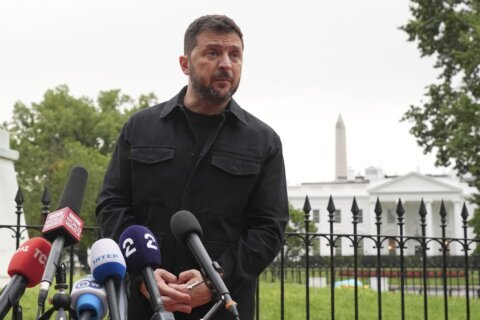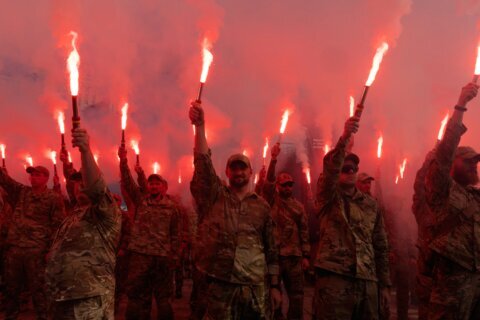WASHINGTON – Before March 18, the wave of conflict and terrorist activity sweeping westward across North Africa from the Red Sea stopped at Tunisia’s border with Libya.
In the wake of the attack sponsored by the Islamic State of Iraq and the Levant (ISIL) on the Bardo museum in Tunis that left 23 dead, the Algerian border is now the red line in the sand.
Is Algeria strong enough to weather the gathering storm? It’s an open question.
“I have to say when I first arrived there, I was surprised to see how nice and lively it is, because Algeria, as you know, had gone through a very difficult decade in the 1990s when it fought a very brutal war against Islamic extremism,” says U.S. Ambassador Joan Polaschik in an exclusive interview with WTOP.
When she began her tour in August 2014, “I was expecting kind of a post-conflict society,” Polaschik said, but “life there is really normal. People are out and about shopping, going to restaurants.”
But whether Algeria can maintain that normality is the question that many counter-terrorism experts are asking. ISIL, which has attracted thousands of fighters from North Africa, including several hundred Algerian nationals, has managed to unearth long-buried discontent amongst individuals and organization around the world.
Central Intelligence Agency Director John Brennan recently acknowledged the depth of the agency’s concern about ISIL’s control over foreign fighters.
“No issue highlights the importance of our international partnerships more right now than the challenge of foreign fighters entering and leaving the conflict in Syria and Iraq,” Brennan said during a March 13 speech at the Council on Foreign Relations in New York.
“We roughly estimate that at least 20,000 fighters from more than 90 countries have gone to fight — several thousand of them from Western nations, including the United States. Blunting the danger these fighters pose upon their return is a top priority for the U.S. intelligence community as well as our liaison partners.”
Algeria is one of those partners, and Polaschik says she believes it’s up to the task.
“When I look at the capacity of those countries in North Africa, the Algerian security services, the military are among the best, because they have this hard-won experience and they have a pretty large security presence.”
But Polaschik, in Washington for the State Department’s annual Chief of Missions Conference, admits a new brand of extremism is on the rise in the region, and may threaten Algeria’s security.
“When I look at the situation in Libya and the horrible events at the Bardo Museum in Tunisia, it’s very clear that there is a growth in the number of extremists and the quality of extremists. They are very violent.”
International intelligence organizations have noted a significant rise in the number of training camps ISIL runs in Libya, and realize it could become a command and control hub for external plotting by the organization.
Algeria’s battle with extremists from 1992-1998 ended the reign of “the Armed Islamic Group,” but in January 2013, elements of al-Qaida in the land of the Magreb (AQIM) attacked an oil facility near Amenas, Algeria, resulting in the deaths of 39 foreign hostages, including three Americans.
Remnants of those organizations still exist.
“Since the 1990s there have been terrorists who’ve been holed up in the mountains to the east of Algiers. There are also al-Qaida-affiliated groups who traverse the southern desert areas moving from Mali, Niger, Libya and back and forth, so there is a terrorist presence in the country and we have a State Department warning,” says Polaschik.
But Polaschik, who grew up in Alexandria and attended the University of Virginia and Georgetown University, said part of her motivation for granting the interview was “to let the folks here at home know that Algeria is an important friend and partner of the United States.”
Another key motivation was painting an accurate picture of life in Algeria.
“When you’re sitting at home and you’re watching the news and you’re seeing a lot of really bad things happening in terms of violent extremism, I hope that people will understand that’s the minority view in the Middle East and North Africa,” says Polaschik.
She said the people she meets are not much different from Americans, and encourages Americans to visit.
“I feel comfortable living and working there. I think American companies feel comfortable living and working there. It’s one of those places where, as long as you are aware of your surroundings, you maintain good relations with the host government, make sure you’re aware of what they’re aware of and share information, it’s OK.”








